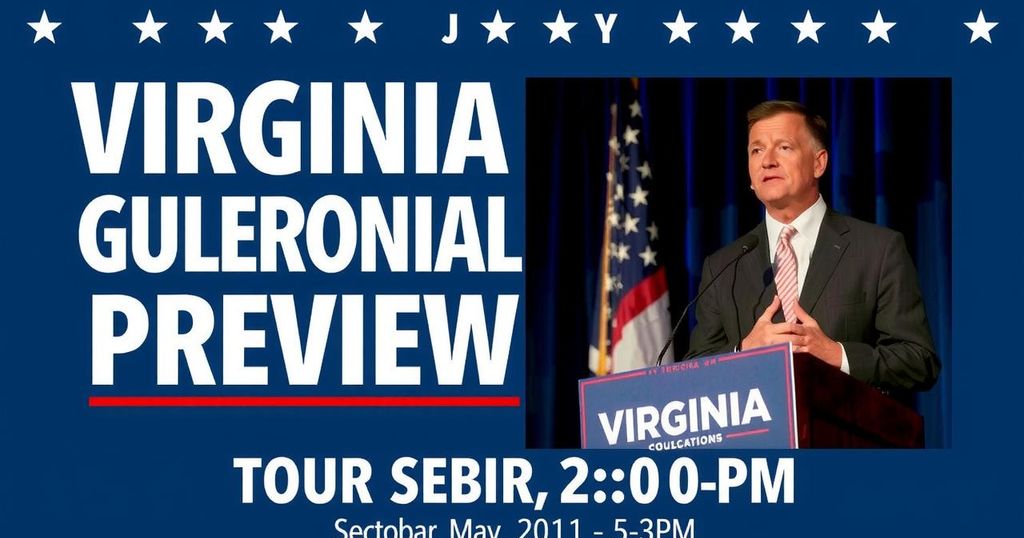World news
7TH CONGRESSIONAL DISTRICT, AFRICA, ALASKA, BRIAN MORAN, CENTRAL INTELLIGENCE AGENCY, CIA, CIVIL RIGHTS, DEMOCRATIC PARTY, ELECTION, LEGISLATION, MARINE CORPS, MCA, MORAN, NEW JERSEY, OBAMA ADMINISTRATION, PRESIDENTIAL ELECTION 2024, SOUTH AFRICA, TOM PERRIELLO, VIRGINIA
Marisol Gonzalez
0 Comments
Virginia Gubernatorial Race Overview and Voting Reforms Discussion
Virginia’s gubernatorial primaries in 2025 show little competition, with Abigail Spanberger unopposed for the Democratic nomination. Republicans face a contest between Winsome Sears and Merle Rutledge. Alaska keeps its ranked-choice voting system, while five states reject similar measures. Recall elections show a low removal rate of targeted officials, indicating challenges in that arena.
The Virginia gubernatorial primaries for 2025 are shaping up with limited competition; currently, Democratic candidate Abigail Spanberger is running unopposed, while Republican candidates Winsome Sears and Merle Rutledge vie for the nomination. Spanberger, a former CIA officer and current Congresswoman, focuses on reducing childcare costs. Sears, an incumbent Lieutenant Governor, champions right-to-work laws. Historically, Virginia’s gubernatorial primaries exhibit fluctuations in competitiveness, but the trends suggest a potential shift in party dominance depending on upcoming elections. Meanwhile, Alaska’s ranked-choice voting (RCV) system has survived a recent ballot measure aimed at its repeal, maintaining the method that was adopted in 2020. Conversely, five states rejected proposals for similar voting systems. The financial landscape regarding these initiatives reflects substantial spending by RCV supporters, indicating a robust effort to solidify the system despite notable opposition. Lastly, the phenomenon of recalls is noteworthy; an analysis reveals that only 16% of officials targeted for recalls between 2014 and 2023 were ultimately removed from office, highlighting the challenges of successful recall efforts.
The upcoming gubernatorial election in Virginia reflects a political landscape where term limits necessitate the election of new governors in both New Jersey and Virginia for the 2025 cycle. Virginia’s primaries have often been characterized by varying levels of competition, with some candidates facing unopposed nominations historically. The dynamics among candidates and the broader electoral processes are crucial to understanding potential outcomes of these elections. Concurrently, Alaska’s voter decision to retain ranked-choice voting emphasizes the ongoing national discussions surrounding electoral reform and voter preference systems. Similarly, the analysis of recall elections provides insight into the effectiveness of such political tools over the past decade.
The Virginia gubernatorial primaries are poised for minimal opposition, with Abigail Spanberger firmly securing the Democratic nomination while Republicans are engaged in a competitive race. Alaska’s recent electoral decision on ranked-choice voting underscores the citizens’ preferences against the backdrop of national opposition. The discussion surrounding recalls indicates a complex political climate with only a small percentage of targets successfully removed. This year appears critical for both state elections and national voting reform movements, paving the way for significant political developments ahead.
Original Source: news.ballotpedia.org




Post Comment